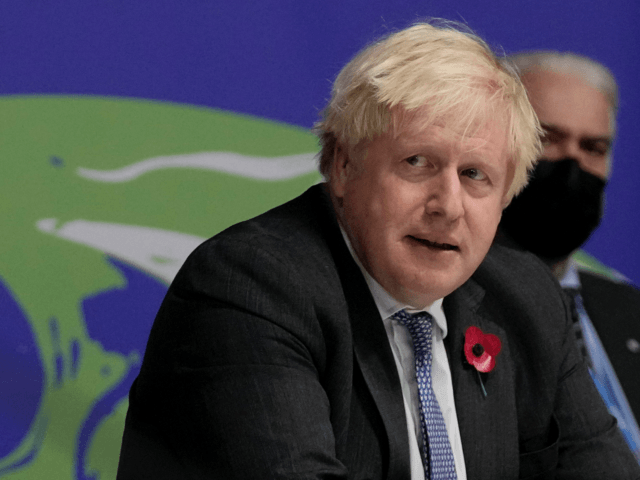Prime Minister Boris Johnson’s government has “no reliable” idea on how much his Build Back Better green agenda will cost the British taxpayer and consumers, the House of Commons Public Accounts Committee said.
According to a damning report from the influential committee of MPs, the government has not levelled with the public about how much the radical green agenda will cost and does not even have a clear picture of the costs themselves. On top of the commitment to reach net-zero by the year 2050, the government has also committed to phasing out combustion engine cars and gas-powered boilers by 2030.
“The government has unveiled a plan without answers to the key questions of how it will fund the transition to net zero, including how it will deliver policy on and replace income from taxes such as fuel duty, or even a general direction of travel on levies and taxation,” the Public Accounts Committee stated.
The report went on to state that the government has “no reliable estimate” of what the actual implementation of the net-zero policies will “cost British consumers, households, businesses and government itself.”
The committee claimed that the witness who testified on behalf of the Treasury Department was “reluctant” to give a firm estimate as the Climate Change Committee’s estimates are likely riddled with “errors potentially compounding over very long periods.”
Therefore the report concluded that the “government is relying heavily on rapidly changing consumer behaviours together with technological innovations driving down the costs of green options but it is not clear how it will support and encourage consumers to purchase greener products.”
The Public Accounts Committee went on to note the importance of providing clear estimates for such an expansive government plan, in order for businesses and consumers to plan accordingly.
“Government has too often pursued stop-start strategies which undermine confidence for business, investors and consumers in committing to measures which would reduce carbon emissions, especially when some green alternatives are still significantly more expensive than current options,” they added.
The government has been facing increased calls to abandon its leftist agenda on the climate amid spiralling energy costs for the average Briton since last summer. The energy crisis is likely to only increase in light of the continuing war in Ukraine which threatens to further destabilise the global energy markets, which were already in turmoil as a result of supply chain issues resulting from lockdown policies during the Chinese coronavirus crisis.
Annual average household energy prices have already jumped by a record 54 per cent increase as a result of increased demand for gas globally. The green agenda has already impacted the expenditure, however, with the average household paying an estimated 25.5 per cent of its energy bill in taxes to prop up fledgling green industries.
Conservative MPs –who gained significant sway over the government which was severely weakened following months of scandals surrounding Boris Johnson’s government allegedly breaking its own lockdown policies with numerous booze-fuelled bashes in Downing Street — have called on the government to immediately release restrictions on the fracking industry to shore up Britain’s energy supplies.
With so-called green alternatives such as wind failing to meet the demands of the country, the Net Zero Scrutiny Group of MPs have demanded that fracking for domestic natural gas should take place with “the vigour of a national war effort”.
“Boris should immediately stop the concreting in of current shale wells and go for gas with all the vigour of a national war effort, which this very nearly is,” Tory MP Steve Baker said this week, adding: “Our civilisation may depend upon it.”
Yet, the government has so far rejected such calls, with a spokesman for the Department for Business, Energy and Industrial Strategy saying: “Gas prices are at record highs, so we need to move away from expensive gas. The more clean, cheap and secure power we generate at home – like renewables and nuclear – the less exposed we will be to expensive gas prices set by international markets.”
Follow Kurt Zindulka on Twitter here @KurtZindulka

COMMENTS
Please let us know if you're having issues with commenting.